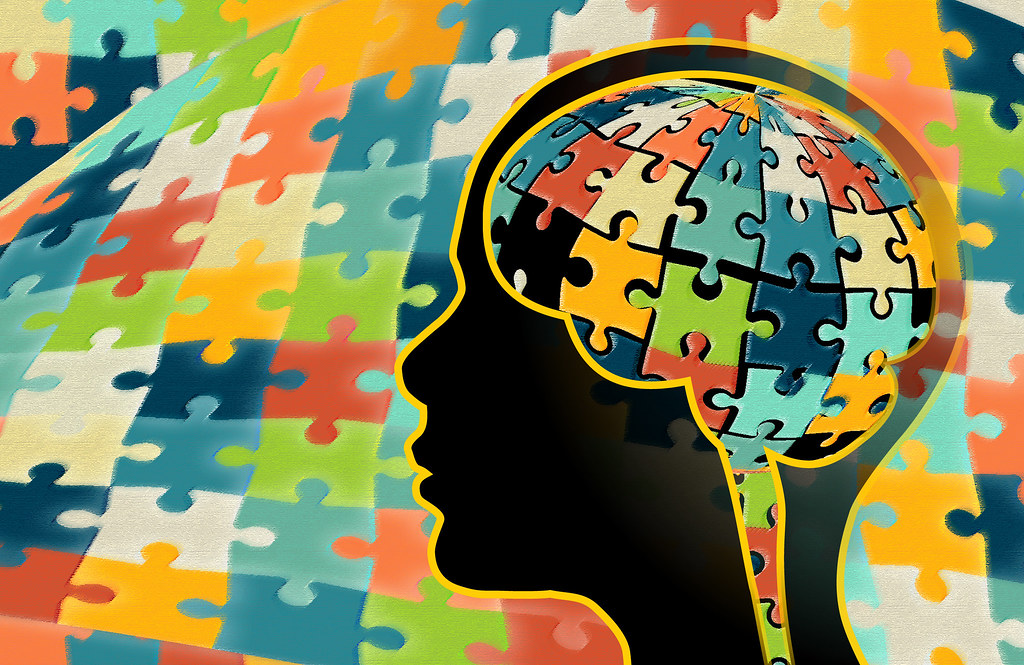Autism spectrum disorder is a condition related to brain development that impacts how a person perceives and socializes with others, causing problems in social interaction and communication, not necessarily with intelligence. Many highly intelligent people are autistic. The disorder also includes limited and repetitive patterns of behavior. The term “spectrum” in autism spectrum disorder refers to the wide range of symptoms and severity. Autism is a specific example of neurodiversity, meaning that autistic people are neurodivergent.
 Why is there controversy about Autism and Vaccines? In 1998, a British physician, Dr. Andrew Wakefield, published a paper claiming a link between Autism and the MMR vaccine. The paper was discredited as fraudulent, and Dr. Wakefield was stripped of his medical license. Unfortunately, despite, clear evidence of falsification of data and many subsequent studies showing no evidence of a link between the two, there continues to be concerns about the vaccine, possibly because Autism often is diagnosed in the same time frame as the MMR vaccine is given. No link has been verified between vaccines and autism spectrum disorder. One of the greatest controversies in autism spectrum disorder centers on whether a link exists between the disorder and childhood vaccines. Avoiding childhood vaccinations can place your child and others in danger of catching and spreading serious diseases, including whooping cough (pertussis), measles or mumps.
Why is there controversy about Autism and Vaccines? In 1998, a British physician, Dr. Andrew Wakefield, published a paper claiming a link between Autism and the MMR vaccine. The paper was discredited as fraudulent, and Dr. Wakefield was stripped of his medical license. Unfortunately, despite, clear evidence of falsification of data and many subsequent studies showing no evidence of a link between the two, there continues to be concerns about the vaccine, possibly because Autism often is diagnosed in the same time frame as the MMR vaccine is given. No link has been verified between vaccines and autism spectrum disorder. One of the greatest controversies in autism spectrum disorder centers on whether a link exists between the disorder and childhood vaccines. Avoiding childhood vaccinations can place your child and others in danger of catching and spreading serious diseases, including whooping cough (pertussis), measles or mumps.
Why are cases increasing now? “Autism spectrum disorder” now includes conditions that were previously considered separate — autism, Asperger’s syndrome, childhood disintegrative disorder and an unspecified form of pervasive developmental disorder. Some people still use the term “Asperger’s syndrome,” which is generally thought to be at the mild end of autism spectrum disorder. Autism spectrum disorder begins in early childhood and eventually causes problems functioning in society — socially, in school and at work, for example.
What causes Autism? Autism spectrum disorder has no single known cause. Given the complexity of the disorder, and the fact that symptoms and severity vary, there are probably many causes. Both genetics and the environment may play a role.
- Several different genes appear to be involved in autism spectrum disorder. For some children, autism spectrum disorder can be associated with a genetic disorder, such as Rett syndrome or fragile X syndrome. For other children, genetic changes (mutations) may increase the risk of autism spectrum disorder. Still other genes may affect brain development or the way that brain cells communicate, or they may determine the severity of symptoms. Some genetic mutations seem to be inherited, while others occur spontaneously.
- Environmental factors.Researchers are currently exploring whether factors such as viral infections, medications or complications during pregnancy, or air pollutants play a role in triggering autism spectrum disorder.
Risk factors. Autism spectrum disorder affects children of all races and nationalities, but certain factors increase a child’s risk. These may include:
- Your child’s sex.Boys are about four times more likely to develop autism spectrum disorder than girls are.
- Family history.Families who have one child with autism spectrum disorder have an increased risk of having another child with the disorder. It’s also not uncommon for parents or relatives of a child with autism spectrum disorder to have minor problems with social or communication skills themselves or to engage in certain behaviors typical of the disorder.
- Other disorders.Children with certain medical conditions have a higher than normal risk of autism spectrum disorder or autism-like symptoms. Examples include fragile X syndrome, an inherited disorder that causes intellectual problems; tuberous sclerosis, a condition in which benign tumors develop in the brain; and Rett syndrome, a genetic condition occurring almost exclusively in girls, which causes slowing of head growth, intellectual disability and loss of purposeful hand use.
- Extremely preterm babies.Babies born before 26 weeks of gestation may have a greater risk of autism spectrum disorder.
- Parents’ ages.There may be a connection between children born to older parents and autism spectrum disorder.
